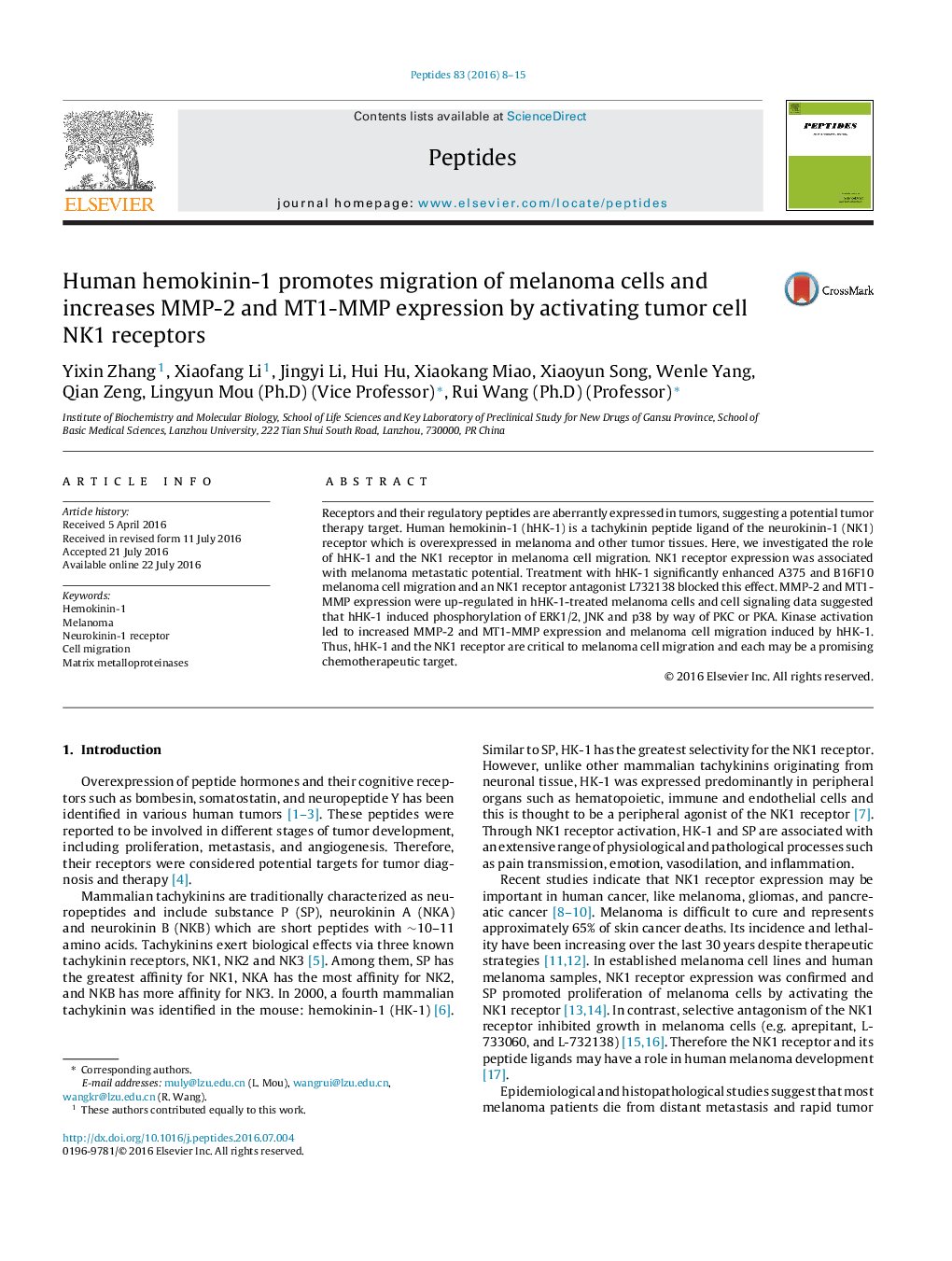| کد مقاله | کد نشریه | سال انتشار | مقاله انگلیسی | نسخه تمام متن |
|---|---|---|---|---|
| 2005789 | 1541696 | 2016 | 8 صفحه PDF | دانلود رایگان |

• Human hemokinin-1 (hHK-1) induced breast cancer cells migration via NK1 receptor.
• HHK-1 increased the expression level of MMP-2 and MMP-14 which were responsible for the increased cell migration.
• NK1 receptor induced the phosphorylation of ERK1/2, JNK and Akt as well as the transcriptional activity of AP-1 and NF-κB.
• AP-1 and NF-κB were involved in the up-regulation of MMP-2 and MMP-14 induced by hHK-1.
Receptors and their regulatory peptides are aberrantly expressed in tumors, suggesting a potential tumor therapy target. Human hemokinin-1 (hHK-1) is a tachykinin peptide ligand of the neurokinin-1 (NK1) receptor which is overexpressed in melanoma and other tumor tissues. Here, we investigated the role of hHK-1 and the NK1 receptor in melanoma cell migration. NK1 receptor expression was associated with melanoma metastatic potential. Treatment with hHK-1 significantly enhanced A375 and B16F10 melanoma cell migration and an NK1 receptor antagonist L732138 blocked this effect. MMP-2 and MT1-MMP expression were up-regulated in hHK-1-treated melanoma cells and cell signaling data suggested that hHK-1 induced phosphorylation of ERK1/2, JNK and p38 by way of PKC or PKA. Kinase activation led to increased MMP-2 and MT1-MMP expression and melanoma cell migration induced by hHK-1. Thus, hHK-1 and the NK1 receptor are critical to melanoma cell migration and each may be a promising chemotherapeutic target.
Journal: Peptides - Volume 83, September 2016, Pages 8–15